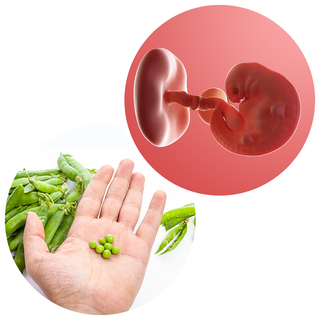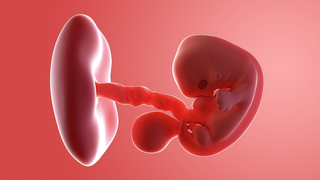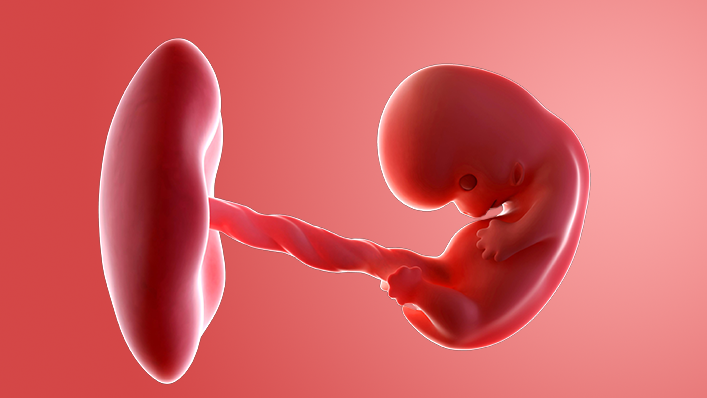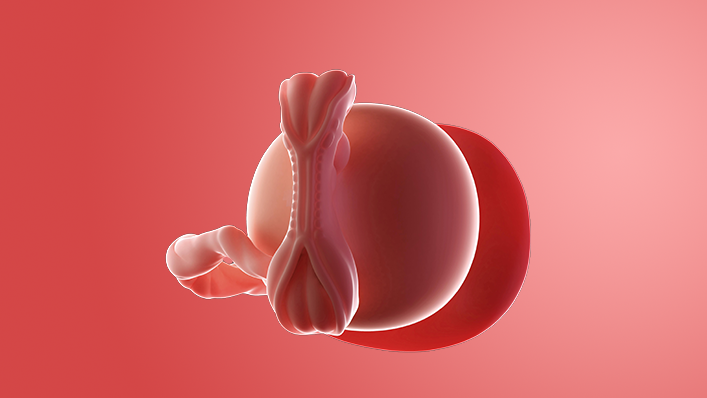Week 6
Now the size of a baked bean, your baby is growing and changing at a fast pace. To achieve this, they get everything they need from you.
For information on your pregnancy journey, sign up for regular emails tailored to your stage of pregnancy or baby's age.
What's happening in my body?
Your baby is growing and changing at a fast pace as they start to grow arms, legs and ears. The liver, brain and musculoskeletal system are also developing.
To achieve this transformation, the baby gets everything they need from you.
Feeling nausea
Morning sickness can occur at any time of day, although it's usually worse when you first wake up. It might help to keep a snack by your bed.
Try eating 6 small meals a day, get lots of rest, and follow a balanced, healthy diet with lots of water. Read these tips on healthy eating.
Some people find that ginger helps (such as ginger tea, ginger ale, crystallised ginger and ginger biscuits). Others say sucking ice cubes and wearing travel acupressure wristbands helps.
If you cannot keep food down, talk to your midwife or doctor.
Early pregnancy symptoms (at 6 weeks)
You may be dealing with morning sickness and tiredness, along with other early signs of pregnancy. Your symptoms could also include:
- a metallic taste in your mouth
- sore breasts
- mood swings (read about mood swings in week 8)
- headaches (read about headaches in pregnancy on NHS.uk)
- new food likes and dislikes
- a heightened sense of smell
- you may need to pee more frequently
- a white milky pregnancy discharge from your vagina
- light spotting (see your doctor if you get bleeding in pregnancy)
- cramping, a bit like period pains
- darkened skin on your face or brown patches – this is known as chloasma or the "mask of pregnancy"
- thicker and shinier hair
- bloating (read about dealing with bloating in week 10)
Read Tommy's guide to common pregnancy symptoms.
A lot of people start to feel better after the 1st trimester (after 12 weeks). Talk to your midwife or doctor about anything that's worrying you.
What does my baby look like?
Your baby, or embryo, is around 6mm long, which is about the size and shape of a pea. Some people think it resembles a tadpole with its little tail.
The arms and legs are starting to form and are known as limb buds. There are tiny dents where the ears will be.
There's a bump where the heart is and another bulge where the head will be. Sometimes the heartbeat can be picked up by a vaginal ultrasound scan, but you are unlikely to be offered one unless you've had IVF.
The embryo is covered with a thin layer of transparent skin.

Action stations
The advice for week 6 is the same as for the earlier weeks. Try to rest as much as possible.
Sexually transmitted infections (STIs)
Do you think you or your partner could have an STI? If so, get checked out, as this could affect your baby's development. Talk to your midwife or GP, or visit a sexual health clinic.
Long-term conditions
If you have a long-term health condition, then let your specialist or GP know you're pregnant as soon as possible.
Don't stop taking any regular medication without discussing it with your doctor first.
More in week-by-week

Week 7
Have you started to share the news yet? When you start telling friends and family is entirely up to you.
More in week-by-week guide to pregnancy


